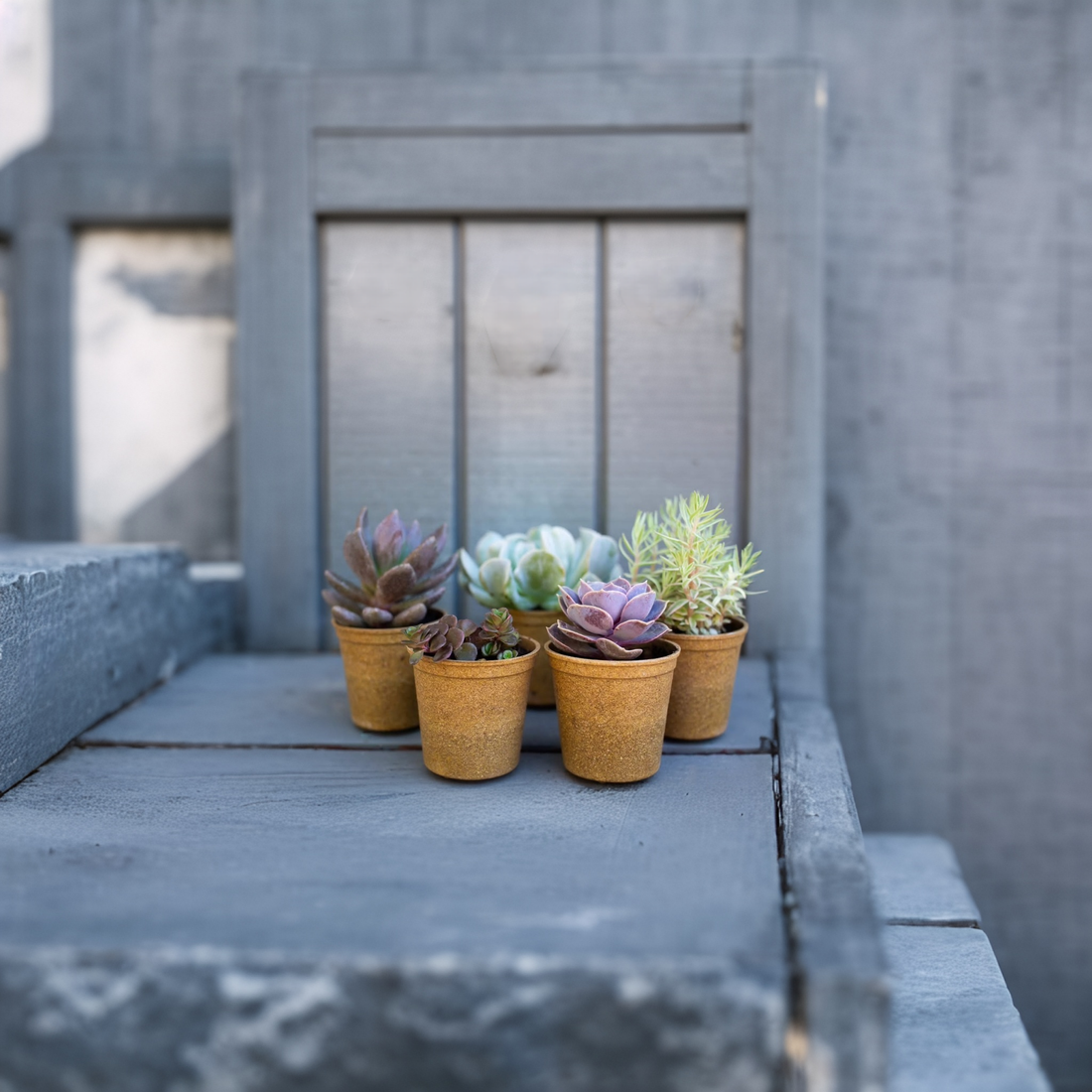
Why Rice Hulls Are the Future of Eco-Friendly Gardening
Gardeners worldwide are rethinking their choices to reduce waste and embrace sustainability. One material rising in popularity is rice hulls—a natural byproduct of rice milling that offers durability, biodegradability, and a lower carbon footprint. But how do they stack up against traditional gardening materials? Here’s why rice hulls are the future of eco-friendly gardening, especially for Kiwis.
1. A Renewable & Waste-Reducing Resource
Rice hulls are an agricultural byproduct—over 150 million tonnes are produced globally each year. Instead of being discarded or burned (which contributes to carbon emissions), rice hulls can be repurposed into biodegradable gardening products. By choosing rice hull pots and soil enhancers, we help divert waste from landfills and support a circular economy.
Why it matters in New Zealand:
·NZ imports over 100,000 tonnes of plastic annually, much of which ends up as waste.
·Up to 40% of plastic plant pots are never recycled due to contamination or mixed materials.
·Repurposing agricultural waste reduces demand for virgin plastic and cuts down emissions.
2. 100% Biodegradable & Compostable
Unlike traditional plastic pots, which take 500+ years to break down, rice hull pots naturally decompose within 3-5 years when exposed to soil and moisture. This means they nourish the soil instead of polluting it.
Benefits for Kiwi gardeners:
·No need for landfill disposal—simply compost or bury rice hull pots when they wear out.
·They enrich the soil as they break down, unlike plastic, which leaves behind harmful microplastics.
·Ideal for NZ’s eco-conscious gardeners looking to minimize their carbon footprint.
3. Durable Yet Lightweight
One might assume that biodegradable materials are fragile, but rice hull products are surprisingly durable. They’re resistant to moisture, UV rays, and temperature changes—lasting just as long as conventional plastic pots when used correctly.
How they compare:
·Can withstand 2-5 years of outdoor use (vs. plastic pots that crack under NZ’s harsh UV exposure).
·More resistant to water damage than wood-based biodegradable alternatives.
·Lighter than ceramic pots, making them easier to handle and transport.
4. A Healthier Choice for Plants & Soil
Plastics leach chemicals into the soil over time, affecting plant health. Rice hull pots, on the other hand, are free from BPA, phthalates, and other synthetic additives.
Key plant benefits:
·Improved root aeration, reducing the risk of root rot.
·Non-toxic and pH-neutral—suitable for sensitive plants and organic gardening.
·Composting adds valuable organic matter to NZ’s often clay-heavy soils.
5. Lower Carbon Footprint
Producing plastic pots requires fossil fuels and emits significant greenhouse gases. In contrast, rice hull products use up to 70% less energy in manufacturing and release far fewer emissions.
Eco-friendly impact:
·Lower carbon emissions during production and disposal.
·Diverts waste from burning, which would otherwise contribute to global CO₂ levels.
·Supports NZ’s sustainability goals and waste-reduction initiatives.
The Future is Rice Hulls
As New Zealand moves toward a more sustainable future, eco-conscious choices in gardening matter. Rice hull pots and soil enhancers provide a practical, biodegradable, and waste-reducing alternative to plastic, aligning with the values of Kiwi gardeners who want to protect Aotearoa’s environment.
Ready to make the switch?
Explore our range of rice hull products and start growing a greener garden today!
